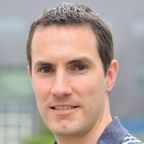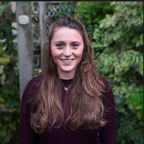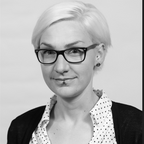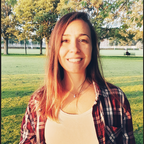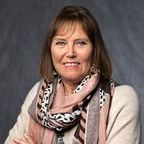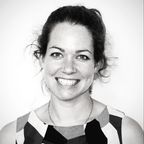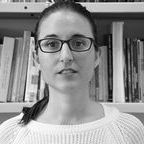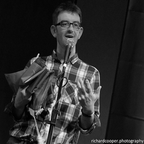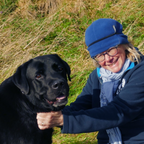Workshops
Image Integrity Workshop – Good scientific practice of preparing and assessing image-based data
The integrity and reliability of images in scientific publications are of highest importance for the scientific community. However, inappropriate image handling can easily impair the scientific validity of this form of data. In this interactive, hands-on workshop we will discuss the dos and don’ts of ethical image processing according to common journal figure policies and good scientific practice. Participants will have ample opportunity to practice and improve their skills in assessing the quality and reliability of image-based data. The workshop is targeted at everyone who reads, writes, or reviews academic articles from early career to more established researchers and no previous knowledge in using image modification software is required.
Workshop Description
Images such as micrographs, pictures of electrophoretic gels, and immunoblots are often at the core of publications in life sciences. Digital imaging and easy access to image modification software has led to increased concern among the scientific community and the public about the authenticity and reliability of this form of data. This is heightened by increasing numbers of retracted papers containing incorrect images and can lower the overall trust in science. The cause for inaccurate image presentation is not always fraudulent misconduct. Instead, ignorance regarding appropriate image processing or honest mistakes are more prevalent, and seemingly innocent ‘beautifying’ of images to increase their aesthetic appeal can easily impair their scientific validity.
In this fully interactive workshop, we will discuss the dos and don’ts of ethical image processing. It will be useful for everyone who reads, writes, or reviews academic articles and is as much for Early Career Researchers and PhD students as it is for more established academics who actively review and edit articles. We welcome people with no experience of using image software and those who want to update their skills.
Applying good scientific practice when preparing and reviewing image-based data is a skill best developed through experience. In this hands-on workshop we will therefore not only inform about journal image policies but, more importantly, participants will learn how to apply them to their own work to avoid image manipulation concerns. We will provide many examples of ethically appropriate or unacceptable processed image for the participants to analyse and discuss. They will have ample opportunity to train their competency in identifying image manipulations and detecting inappropriate image duplications, which is essential when assessing the quality and reliability of papers as a reader or reviewer. We will also address how open data strategies and use of artificial intelligence can contribute to these processes. Different options for reporting suspected image manipulations in published articles will be discussed within the group, and we will provide insight into the processes that can follow when a journal is alerted to potential image-related misconduct.
All sections will involve group discussions to enable knowledge exchange. Participants will be encouraged to share their own experience with image-related issues that may arise during the publication process or post publication, so that others can avoid common pitfalls and problems. There will also be space to discuss cultural differences in standards of image preparation.
Upon completion, participants will
- be able to prepare images for publication in an ethical way and according to common journal figure policies and good scientific practice,
- be able to assess the quality and reliability of image-based data in papers as readers or reviewers, and
- be able to take appropriate steps to report suspected image manipulation in published articles.
How to work with your Data, an interactive workshop
|
The way we disseminate scientific results is changing to include Open Science and Findable Accessible Interoperable Reusable (FAIR) principles. Well-organised data (and code) is not only the best preparation for this, but it is also a way to increase productivity. With the introduction of Narrative CVs, both you and your research can be recognised for these new research outputs. We aim to show how you can make the most of these changes by thinking ahead about your data. In this interactive, hands-on session, we will teach:
This workshop is aimed at all active researchers in biomedical sciences: PhD students, postdocs, technicians and even PIs. The interactive format of this course (practical exercises and group discussions) makes it longer than a typical death-by-powerpoint presentation, but it is also much more rewarding for the participants. Practical information can be found on the workshop webpage: https://biordm.github.io/SEB-2023-work-with-data/
|
Science and Social Media. Are they really compatible? Developing Effective Science Communication Strategies.
Session Length
1 half day (Wednesday 5th July (AM))
Workshop Description
Session organized by The Global Plant Council. With this session we want to equip the participants with the necessary skills to increase their social media “influence”, either among peers or the public, by better understanding the “rules” of scicomm and social media.
- Which are the best channels to engage with other scientists? Are those channels the same in the case of the public?
- Which are the most populated social media platforms?
- All the content is created equal, is it not?
This session is open to anyone, young or senior, who is interested in communicating science on social media platforms and wants to gain a better understanding of how these platforms work and how scientists can improve their scicomm skills when communicating with other scientists and the public.
The Centinary conference will take place at the Edinburgh International Conference Centre The Exchange, 150 Morrison St, Edinburgh EH3 8EE

Visit Scotland supporter of the Centenary conference

